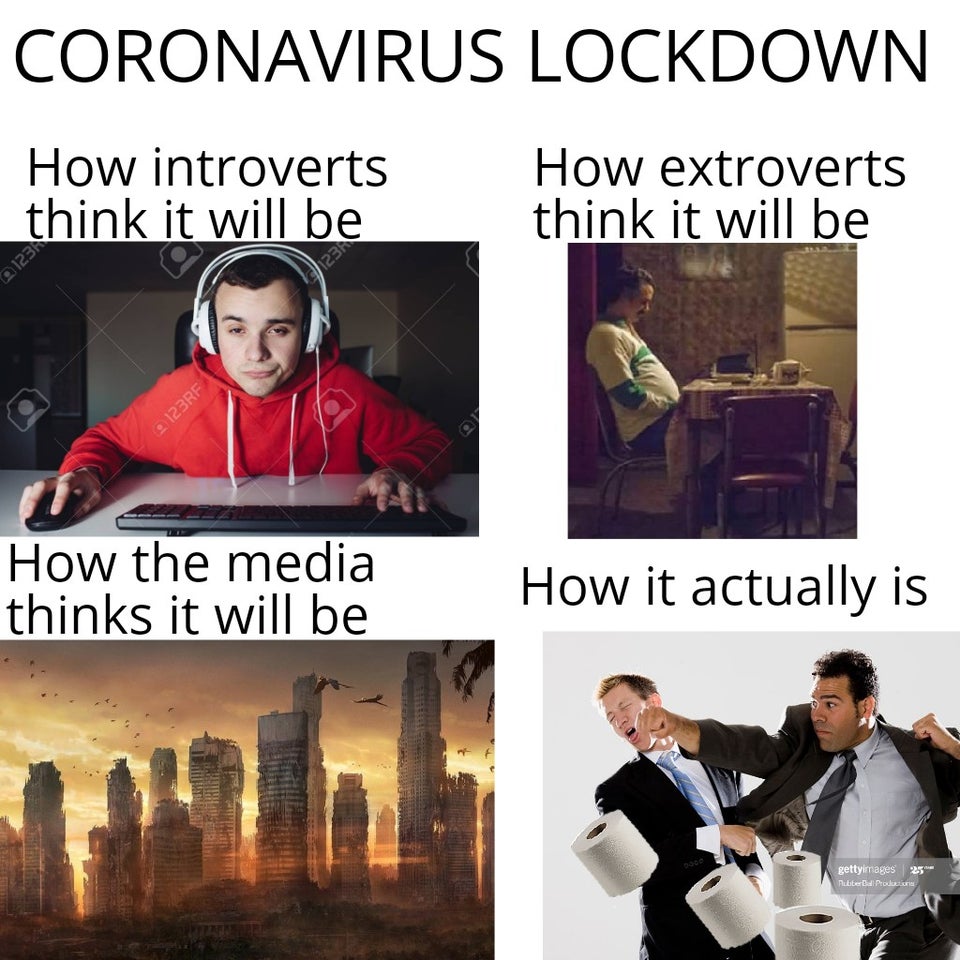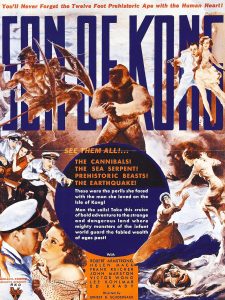
EDIT: This blog has been edited since it was first posted. After some discussions on social media and a little more research, I realized it had some inaccuracies. The blog was also meant to be a bit tongue-in-cheek, and once again I’ve learned that doesn’t always communicate on the internet. The biggest deletion pertained to the hysteria being manufactured to hurt the Trump Administration going into the election. I had no idea this was something started by President Trump on Twitter. It was a conclusion I came to on my own. I am a self-proclaimed “Trump agnostic,” meaning I’m not part of either the Never Trumpers or the president’s cult of personality, which is why I tick everyone off. (I do think someone needs to take Twitter away from him, though). However, I do stand by my assertion that the media is stoking the hysteria because, as Tim Constantine wrote for The Washington Times, “fear sells.” Since this is new (“novel,” which means “new,” is part of the disease’s name, after all) and relatively unknown, people fear it even though there are diseases out there that are far more common and far more likely to kill someone. Humans fear the unknown. However, I also know human nature well enough to know that there will be those who will try to take advantage of the situation for their own benefit, and that’s especially true for those in power. That’s the big reason why I think the hysteria needs to stop, which is the point I wanted to make with this blog. We need to be safe and watch out for those who are the most vulnerable among us (my younger brother has a form of asthma, so I know), but turning the world upside down like the Black Plague has suddenly returned is an overreaction. My apologies for not making that clear in the first published draft of this blog. (EDIT ENDS)
For the first few months of 2020, the coronavirus (or Covid-19 as the media is now calling it) was China’s problem. It was nasty, but it was “over there,” to quote a goofy Superman comic. It was an issue for the elderly and immunodeficient (spellcheck doesn’t like that word for some reason), but so was the flu.
But like black mold creeping along your floor, the disease kept spreading until it hit the U.S. California, if I remember correctly. Then Washington State. I figured it would be contained. The CDC reacted quickly. But then it cropped up in other states. Again, I didn’t think much of it. Until a man in Indianapolis was diagnosed with it. Within a few days, another man in the county next door to me was infected.
By that point, as the old saying goes, all hell broke loose.
State and local governments started mandating that large gatherings be postponed. Restaurants and schools closed. Movies had their releases or productions delayed. Sporting events were canceled. People were told to stay home in self-quarantine.
Businesses are losing gobs of money—unless you’re Clorox or Netflix. They’re swimming in money. Hand sanitizer is liquid gold now. I saw a listing on eBay where someone was selling four 30-ounce bottles of the stuff for $500. If I’d known, I’d have stockpiled it and started a black market.
At least The Babylon Bee has had a heyday with this pandemic panic.
Not only am I going to Walmart and grocery stores and finding the shelves empty (thankfully, I have enough toilet paper to last a while), but it has affected my schooling and my job. My university has decided to extend its spring break a week and make all classes totally online for the rest of the semester. I’m taking two as a grad student and teaching two as a graduate teaching assistant. I’ve taken a few online classes before (and didn’t like it), but I’ve never taught one. Now I have to find a way to adapt for the last six weeks or so of the semester. And I’d just started to get to know my students and looked forward to seeing them. So, my extended spring break has become an extended working spring break since I now have to figure out how to re-jigger my classes. Meanwhile, I don’t know what the classes I’m taking will look like. One professor is totally old school, with the only online stuff he does being e-mail. The other professor has one foot in old school and one in new school. I’m more confused than a dog after he catches a car.
Elsewhere, the ballroom dance studio I attend has started making students not touch each other in group classes and has canceled their Friday night parties until further notice.
Now I don’t know if I’ll make it to G-Fest or Gen-Con this summer.
I thought my small church would be fine, but Gov. Holcomb has decreased the size of allowed public gatherings from 250 to 50. Now President Trump is recommending it be limited to 10. Even my church wouldn’t be able to meet if that was in place.
With all this mandated “social distancing,” I’ve joked this is introverts trying to get revenge on extroverts. Or its social engineering to wipe out extroverts.
You’d think I’d revel in that, but I’m a freak among the freaks: I’m an extrovert. I drive my fellow nerds and writers crazy.
Now when I make jokes about this or point out the hysteria, I get pushback on social media. Someone even said I was being flippant. All I could do was shake my head.
I’m not saying people shouldn’t be concerned. I’m not saying they shouldn’t take precautions. But this is a disease that, at most, has a 3% fatality rate (and that’s if you’re old or have an outstanding medical condition). If this was something both highly contagious and truly deadly, I could understand the fear, but people are treating Covid-19 like it’s the T-virus. I get it: hospitals could be overwhelmed with an influx of patients. However, I’ve heard most people who get it don’t show symptoms. That being said, it doesn’t justify all the freaking out.
Well, that’s enough of me complaining about my unimportant first world problems.

In the meantime, if you want some new books to binge read while in self-quarantine, I have plenty. They’re all on Amazon, which means they can be delivered to your door so you won’t have to go out. (Although, one features a bio-weapon plague, but maybe it will be cathartic for you).
Also, I have 12 episodes of a kaiju (giant monster) podcast you could binge listen. It’s called The Monster Island Film Vault.
Yes, I’m not beyond using this for shameless self-promotion. That’s why it’s shameless. 😛
What do you think of the whole situation? Is it legitimate or is it hysteria?








